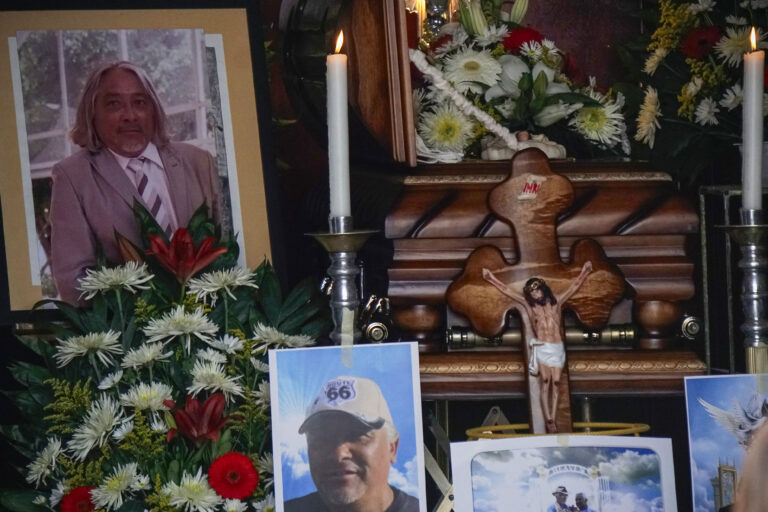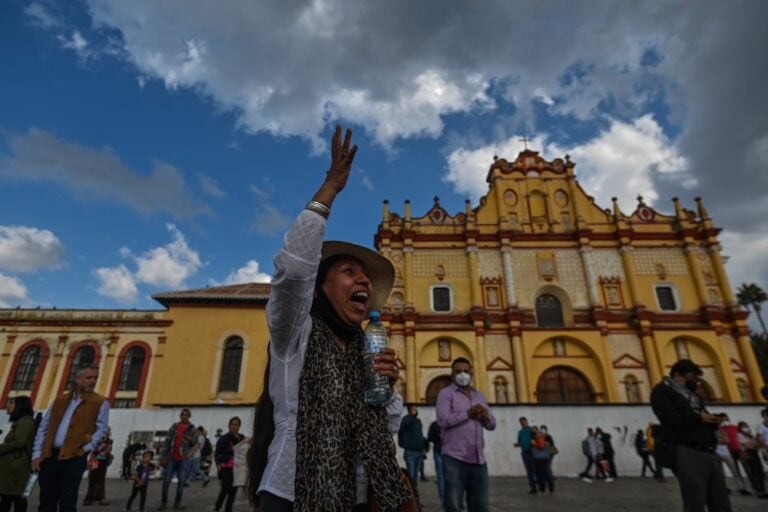(ARTICLE 19/CENCOS/IFEX) – The following is a 3 April 2009 ARTICLE 19 and CENCOS press release: Arbitrary closure of television station threatens freedom of expression On 13 January 2009, in the municipality of Hecelchakán, in the southeast state of Campeche, authorities closed the local “Televiva” television station, alleging that there were financial irregularities at the […]
(ARTICLE 19/CENCOS/IFEX) – The following is a 3 April 2009 ARTICLE 19 and CENCOS press release:
Arbitrary closure of television station threatens freedom of expression
On 13 January 2009, in the municipality of Hecelchakán, in the southeast state of Campeche, authorities closed the local “Televiva” television station, alleging that there were financial irregularities at the station. Recently, the station has had various disagreements with the municipality, and its staff and director, Pascual Villagrana, have been the targets of harassment and threats.
“Televiva” had a financial agreement with the municipality which exempted the station from paying taxes for five years. When new local authorities informed the station that this agreement had changed, Villagrana tried to find out how much the station owed the municipality, but municipal officials refused to tell him.
The closure of the station was accompanied by several anomalies, such as a failure to provide the station with any warning notices, in addition to missing signatures and discrepancies in dates on documents. Villagrana made a request in writing to have the station’s closure explained to him, but he did not receive a reply. The station is still off the air, with a resulting interruption in the work of the station’s journalists.
The friction between “Televiva” and municipal officials goes back to 2007 with the broadcasting of a cable programme that interviewed citizens about community issues. This programme provoked various discussions with authorities since, in many cases, the comments were critical and many irregularities in the local administration were revealed. Villagrana believes that these incidents are the motive behind the closure of “Televiva”.
In an interview with ARTICLE 19, Villagrana mentioned many actions against him, his staff and the station’s facilities. On 3 December 2007, unidentified individuals entered the television station’s offices and sprinkled muriatic acid around, causing irreparable damage to equipment. Villagrana said he has also received telephone calls warning that if the station did not stop speaking out against the local mayor it would “suffer the consequences”.
Currently, legal actions have been started in order to determine who is responsible for the actions against the station, but none of the perpetrators of the threats or harassment have been brought to justice. During a public ceremony in January 2009, just before the closure of “Televiva”, the mayor made it clear that “the station could be shut down” since “it had destabilized the municipality”.
The fact that the station has been unable to determine its legal and financial standing, and that it is unable to re-establish regular broadcasting is an obstacle to freedom of expression. The latter constitutes a blatant departure from that which is stipulated in national legislation and international agreements signed by Mexico within the framework of the International Covenant on Civil and Political Rights.
The recent actions against “Televiva” hinder freedom of expression in the sense that they infringe on both the individual and collective rights of society to be informed. When free access to information is reduced, as well as the plurality and diversity of the media and ideas, society lacks the resources necessary to make informed decisions and participate in the democratic process.


